- Home
- Lorenzo Carcaterra
The Vulture's Game (Short Story) Page 2
The Vulture's Game (Short Story) Read online
Page 2
I loved the feeling of power that emanated from him, and the fear and control that came with it. I was too young to understand the destructive force such power possessed, to know when to let it go, when to put it to use. Even so, I was addicted to its appeal.
And let’s be honest here. What young man my age wouldn’t be? Prior to Uncle Carlo’s entry into my life, I had only read about powerful men in books, and few of those titans bore any resemblance to him. The men in those books built their power on greed and avarice and on the sweat and stains of others. They never got their hands dirty, never ventured out into the darkness unsure of their return, never fought against the odds and somehow managed to come out on top. They left the blood work to others.
To men like my Uncle Carlo.
He was a physically imposing man, strong upper body honed by his boxer’s workout, pounding at a heavy bag he kept in his basement every day. His dark hair, touches of gray at the edges, was combed straight back, and he was always stylishly dressed, though never in a flashy way. He was ruggedly handsome, Russell Crowe without the accent and minus a few inches in height. He had a flash temper but also a great sense of humor, as quick with a joke as he was with an order to kill.
Looking back now, it should have been clear to me that I was being prepped and groomed to replace my uncle when his time as the head of New York’s branch of the Camorra came to an end. I was given books to read that detailed the history of the organization from the thirteenth century, when its objective was to help the poor survive the onslaught of taxes placed on them, up to the current day, when Carlo’s group ranked in the top echelon of powerful crime syndicates. Combine the reading with frequent trips to Italy and long walks and talks with Uncle Carlo on the beachfront adjoining his property, and my education in the ways and means of organized crime was well under way. I had been given access to a secret world lived out in plain sight, a sinister place held together by rules and bylaws in existence for centuries, a dangerous corner where betrayal marched hand in glove with loyalty. As the years passed, there remained only two questions I needed to answer, and Uncle Carlo clamored to know: Did I want a place at the table? And, Would I survive if I took one?
And that’s where Frank Scanlon enters the picture.
Among his many vast legal holdings, nothing earned my uncle more than his investments in Manhattan real estate. Through the unions, he was able to dictate the budgets of most of the new construction going up throughout the borough and then skim both from the top and from the cost overruns to ensure a profit. He took a fifteen percent commission on all supplies, from wood to windows to nails. He took advantage of owners late on mortgage payments, first coming in as a benevolent partner and then, over time, taking full control of the property, either buying out or taking out the now ruined landlord. He took over tenements simply to secure their air rights, which he then sold to the highest bidder for millions, walking away from each deal with a padded wallet and a wide smile. “Never let anyone tell you this isn’t a great country,” he told me and Jimmy after closing on one such deal. “Not when someone can hand you a check for millions in return for you giving him nothing but a few floors of air.”
Uncle Carlo shared his profits with the other crime outfits, making sure no one at the table was left empty-handed. This helped guarantee there would be peace among the various factions and secure him favor chits that he could cash in on if need be at a later time. He cashed in on twenty-five percent of the ongoing real estate market—including cutting in on agents’ commissions on high-end buys and sells; taking a cut of rent money from any building he held a piece of; and dipping into co-op and condo board funds. All told, Uncle Carlo’s real estate businesses netted him and the outfit well over $100 million a year in clear profits.
But there was more to his holdings than money. As with anything related to organized crime, there was blood.
In the summer of 2000, Uncle Carlo owned three real estate companies, each with multiple offices in the tristate area. Two of the companies were completely legitimate, their yearly earnings dutifully reported to the IRS, their books open and available for anyone to see. The third real estate company, with six branches in New York and two in New Jersey, sought their buys and sells in an entirely different arena. The offices were spare: two desks, two clear-lined phones, one agent, and a part-time receptionist. They specialized in short-term rentals, one- and two-bedroom apartments, usually at affordable, middle to upper-middle-class rates. The agent working the desk was young and well mannered and always dressed in jacket and tie.
The agencies in this third real estate company did not advertise or solicit clients. Anyone interested in their specific apartments knew where to go and when. They catered to a specific group of clients who were less interested in an apartment’s décor or proximity to a specific subway line, and more interested in the current occupant.
Each of these real estate offices was, in fact, an assassination bureau.
It was effective, direct, lucrative, and beyond the reach of any branch of law enforcement. Uncle Carlo had worked up the idea with Alan Wagner, a former top-tier Mossad operative, Israel’s equivalent of our CIA, only competent and trustworthy. Together, they devised a system so simple as to be virtually undetectable: A man walks into one of the real estate offices and sits across from the young agent. No names are exchanged. The man is eager to find an apartment, somewhere on the Upper West Side, in the mid-eighties. The agent nods and tells the man, “That’s a wonderful location, close to the park and many bus and subway lines. Doorman or walk-up?”
The man thinks for a second and then says, “Walk-up, no higher than the third floor, preferably an apartment in the front with a street view. I enjoy looking out a window and seeing the street activity below.”
“Understood,” the agent says. “Have you just started looking?”
“A few weeks,” the man says. “In fact, I saw a building I just loved. It was on West 84th. I believe the number was 205.”
“I’ll check and see if what you are looking for is available in that building,” the realtor says. “Are you in a hurry to move?”
“I would like to be in at the end of the month,” the man says, “at the latest.”
“Is it just you or do you have family?”
“No,” the man says. “There will be only one tenant.”
And so, the death deal is made. The target lives at 205 West 84th Street, third-floor apartment facing the street. He lives alone and is to be killed before the month is out. The price for such a hit is $25,000, a fee the prospective tenant will have placed in a rental car parked on a side street in Long Island City, the keys left in a men’s room stall at a nearby restaurant, the money picked up not by the realtor but by one of Uncle Carlo’s trusted couriers. The cash will then be shifted to a second car and driven to an auto dealership where the money will be recycled as payment for a preowned luxury car. It was all nice, clean, and painless—unless you happened to be the intended target.
I’m not going to lie to you. I was impressed by the efficiency of the operation. The real estate agents were routed out every six months, sent on missions in Europe or across the country. If it was even hinted that any one of them might be inclined to do a flip or brag about his business to a friend or a lover, he was eliminated without hesitation, his body dissolved in an acid barrel that same day. Wagner, a tall, thin man with a rakish sense of humor and a passion for the theater, ran the operation out of a safe house on the East Side of Manhattan. He kept to his Mossad training—he seldom if ever spoke on the phone; held all pertinent conversations outside, usually by a construction site so the noise could drown out any possible wire pickup—and hand-picked both the assassins and those who fronted the real estate offices. He was paid $5 million a year for his services, the money deposited on a monthly basis in a nephew’s bank account in a Berlin bank.
Now you would think that between a twenty-five percent share of all the real estate action in New York City plus his rather hefty
cut from the assassination bureau’s operations, my uncle would be pleased with business. But a mob boss is never satisfied with a piece of the pie. They want the whole damn thing, and if you happen to be standing between him and it—well, as they say, it might bring you some bad weather.
“Tell me what you know about Frank Scanlon,” my uncle asked me one night during dinner at one of his downtown restaurants. I was twenty-two years old, still in college, about to be engaged to a woman I was madly in love with, and unsure of my place in Uncle Carlo’s universe. Even more, as attractive as I found that world to be, I was uncertain whether I wanted to plant my flag on its soil. You don’t get to test-drive that decision, check it out for a year or two, see how it suits you. The thumb goes up or down well before that. And know one other thing about mob bosses—they all hate the sound of the word no.
I rested my knife and fork against the side of a thick plate and looked at my uncle. “Most of it is from what I’ve read in the papers,” I said. “He was born rich thanks to his father’s various investments and is now even richer thanks to his own. He seems to go out every night and never with the same woman, assuming you can believe what’s in the gossip pages.”
“You read that shit?” my uncle asked.
“Guilty,” I said. “That and the sports section.”
“Stick to the business pages,” my uncle said, “it’s time better spent.”
“You always say make it your business to know your business,” I told him. “Reading everything, even the gossip pages, helps me know my business.”
My uncle nodded. “And what do those pages tell you?”
“He’s got quite a few buildings going up, mostly in Manhattan, East side and West,” I said. “Mortgages them pretty heavily, and the monthly rates in his buildings are three, sometimes four, times as high as the other luxury apartment towers. Then again, he does offer a full-service ride. You live in one of his places, more like a hotel than a home.”
“So you do read the business section?”
“I got all that from People, truth be told,” I said.
My uncle slid a thick manila envelope from his side of the booth to mine. “What’s in there will tell you what you don’t know about him. Real estate is not the only place he gets his money from. He’s branching out into casinos, the tracks, some of the airport action, high-end call girls, and, rumor has it, is eager for a taste of the drug business.”
“And we’re not happy about any of that?” I asked.
“I wouldn’t be that upset about it, had he come to me and asked in,” Uncle Carlo said. “I’m not saying I would have made a deal with the guy. Truth is, he doesn’t seem my type, as I like seeing my name in the papers about as much as I like getting shot at. But I would have given him the courtesy of a fair listen.”
“Has he touched anything on your end?”
Uncle Carlo shook his head. “Just because he hasn’t yet doesn’t mean he won’t down the road,” he said. “Leaving him alone now gives him confidence, boosts his ego—and he’s got enough of both to begin with. I can’t risk letting him branch out.”
“He gets his nails done twice a week,” I said. “And has a barber come to his office every other day to deal with his hair. Guy does that regular doesn’t sound like someone that’s looking to get into deep water.”
“People again?” he asked.
“Us,” I said. “Read it the other day while me and Jimmy were at the park.”
Uncle Carlo smiled. “If you’re going to keep reading that trash, get your own subscription,” he said. “Stay away from mine. Okay?”
“Not a problem,” I said.
“Well, you’re going to feel different about the man after you read through his file,” he said. “His hands might stay clean but that doesn’t mean he’s shy about bringing in those that aren’t. What a guy lets the press see matched up against who he really is, picture is never the same. Take my advice, toss the magazines and bury yourself in that folder.”
I nodded. “Have you ever met him?”
Uncle Carlo shook his head. “He walks his streets, I walk mine,” he said. “Him and me, we’re not meant to touch.”
I needed to ask the question, to make clear what it was my uncle was asking me to do. “You want me to deal with this?”
“That’s why we’re here,” he said, matter-of-fact. “It’s time, Vincent. To see who you are and to find out on which side of the ledger you belong. And if you’re not up for it, not eager to get into it, now’s the time to say so. You want to go on with your life, head out into the civilian world, you’ll still be my nephew and I’ll still love you. That won’t change.”
I stayed silent for a moment, staring down at the remains of a sliced steak and roasted pepper dinner. “You think I can handle it?”
“I’d like to think so,” he said. “I watch you, you stay to yourself mostly, which nine out of ten is a good thing in my world. You and Jimmy stay close to one another, run things by each other. To me, that’s another big plus.”
“Where do I come up short?”
“You’re my brother’s son, Vincent,” Uncle Carlo said. “Don’t get me wrong. Mario was a good man. Honest, dependable, hardworking. He had a decent heart and that made him soft. He couldn’t deal with the loss of your mother. Wasn’t looking to run the company he worked for, content to put in his pockets only what other men said he had earned. That doesn’t fly on my turf. So, I don’t know how much of him is in you. Or how much of me.”
“You want me to include Jimmy on this?”
“I only wish you could,” Uncle Carlo said, his voice suddenly bearing the additional weight of sadness. “Look, in a just world, I’d be having this talk with him, not you. He’d be the one picked to go and butt heads with Scanlon. Not you. But if we’re looking for a just world, then we’re all in the wrong place. I can’t send a kid who can’t walk or talk up against a hardcase like Scanlon. Truth is, I can’t send him anywhere. That’s his weight to bear, and mine.”
“He’s not going to care all that much seeing a college kid sitting across from him, either,” I said.
“You make him care,” Uncle Carlo said. “You’re a Marelli, you take a step back from no one. Especially not some suntanned punk who had everything in life handed to him by a father he hated and a mother he never knew.”
“How do you want this to end?” I asked. “Best case.”
“If he stays in his buildings and away from everything else, I’ll leave it be for now,” Uncle Carlo said. “If he cuts us in on action he’s already got going, including those high-rises of his, so much the better.”
“And if he refuses to go with either one?”
“Your call, kid,” Uncle Carlo said. “By the time this is done, I’ll know a little bit more about Scanlon and all I need to know about you.”
“You want daily or weekly briefings?”
“Nope,” Uncle Carlo said. “This one is all you, Vincent. Once it’s done, we sit and talk about it. I’m looking for a resolution. How you get to it and what it takes to get there? Your call.”
“You worried?” I asked.
“About you letting me down?” he said. “Or about Scanlon being more than you can handle?”
I shrugged, meaning both.
“I worry about everything,” Uncle Carlo said. “Even in my sleep.”
MIDTOWN MANHATTAN OFFICE BUILDING, AUGUST 13, 2002
11:00 A.M.
“This little bastard,” Scanlon said, his voice at its usual high volume, “comes into my office and tries to stare me down. What the hell did he expect me to do? Shit my pants? Beg for mercy? I floss my teeth with kids like him. I don’t know who the hell he’s trying to scare.”
“He might not be much,” Al Collins said, “but he didn’t walk into your office on his own and you didn’t meet with him because you had a hole in your schedule. He’s got a big shadow behind him. Be best for you not to forget that.”
“Yeah, yeah,” Scanlon said. “So Uncle Mob i
s calling the shots, not College Boy. If that’s the case, then why was I wasting my breath on the kid? Why didn’t his uncle come see me?”
“As a rule, not how he does business,” Collins said. “He’s old school. He sees you as someone standing in his way, moving in on areas he considers off limits.”
“Listen to me,” Scanlon said, his tanned face turning red. “We’ve been together a lot of years. We built what we wanted to build and we pushed back against anyone who needed pushing. So, now we have to stop because what? Some old goomba got his shorts twisted about our business?”
“To write him off like that would be a mistake,” Collins said. “He comes off as a quiet old man, but make no mistake. That is one tiger you do not want out of his cage.”
Al Collins and Frank Scanlon had been together since they both eyed the same attractive blonde on the registration line at Harvard Business. Collins always liked to tell friends and associates over the course of many years that, “I beat Frank to the girl that day. The only time that’s ever happened.”
Collins was the physical opposite of Scanlon. He was short and bald, rail thin, and his suits always seemed one size too large for his slender frame. He seldom went out, and when he did it was always in the company of his wife, Janet, a warm and kind woman whom he met at a Harvard alumni dinner ten years earlier. They had no children and doted on their three dogs, relishing the long walks through Central Park they would take together whenever Collins’s work schedule allowed.
With degree in hand, Collins went to work for Scanlon—though, in truth, they were both then employed by Frank’s father, Gerald, a hard-edged businessman with no time for anything but work. “He makes a lot of money, my dad does,” Frank told Al one time over late night drinks. “And he gets zero pleasure from it. No women that I know of, drinks only when he has to, forget about drugs. When he travels, he gets to wherever the hell it is the deal is going to be closed—on the day of closing—and heads back home that same night. Not one single ounce of pleasure. Going to be different for me when I take over, mark my words, Al. Toss my dad’s name around the clubs where the deep pockets hang out and no one there even knows the guy’s name.”

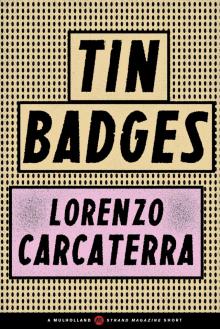 Tin Badges
Tin Badges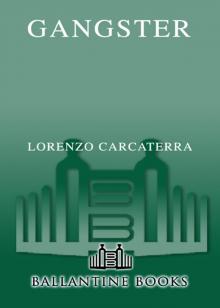 Gangster
Gangster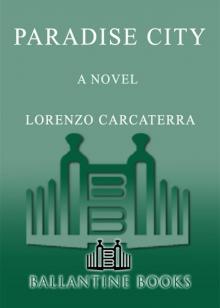 Paradise City
Paradise City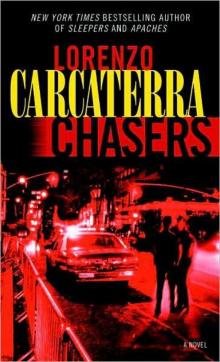 Chasers
Chasers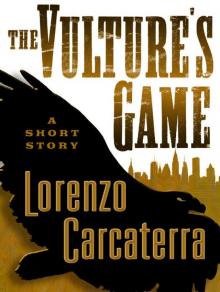 The Vulture's Game
The Vulture's Game Payback
Payback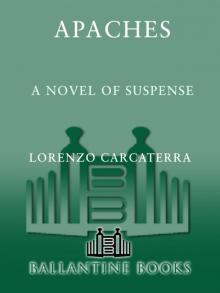 Apaches
Apaches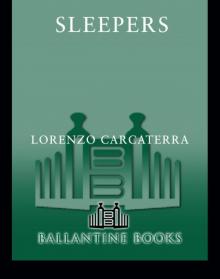 Sleepers
Sleepers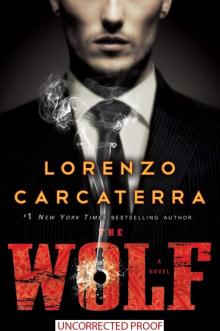 The Wolf
The Wolf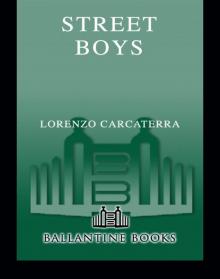 Street Boys
Street Boys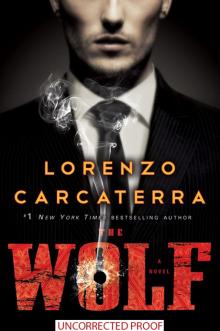 The Wolf: A Novel
The Wolf: A Novel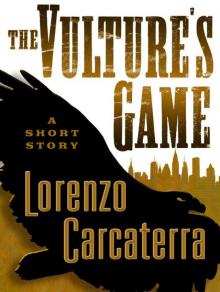 The Vulture's Game (Short Story)
The Vulture's Game (Short Story)